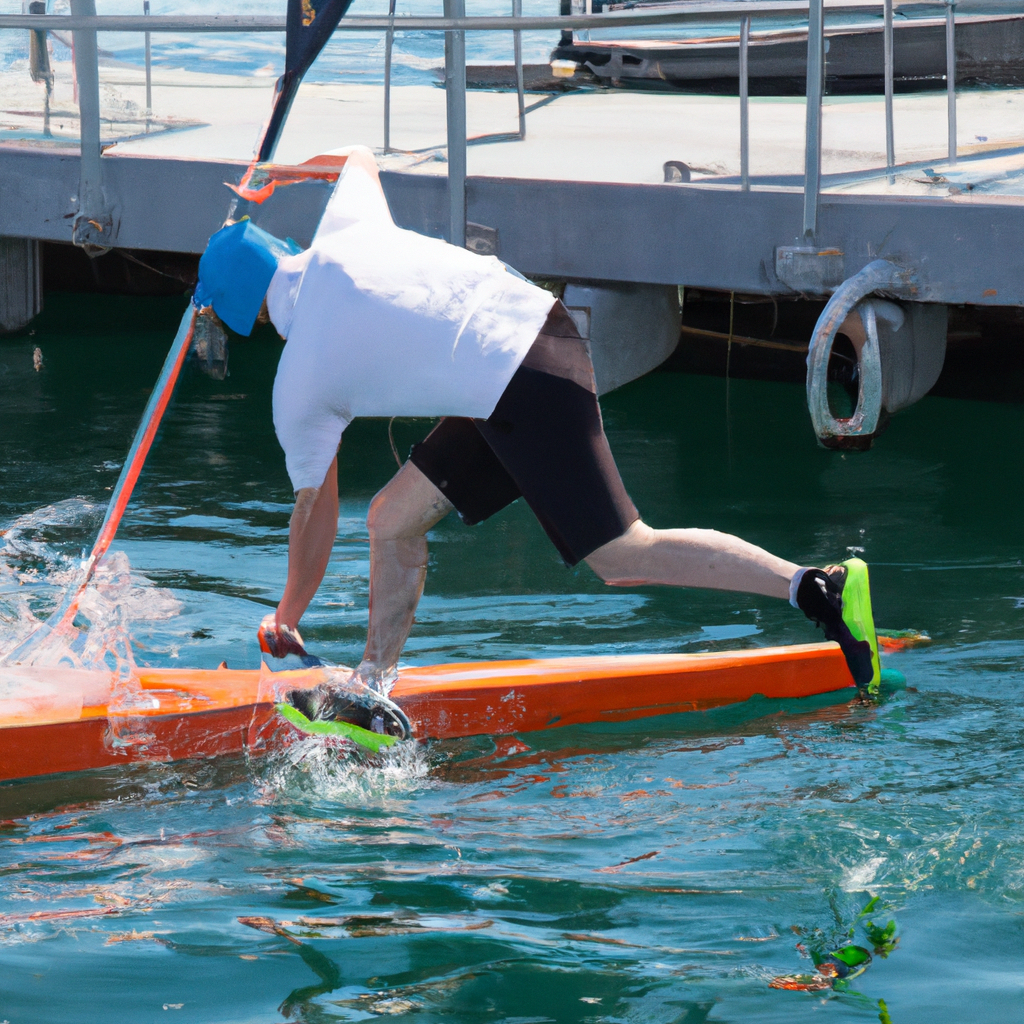Sustainability has become an issue of great importance and concern in all areas and sectors of society, including the world of sport. In this context, nautical sports are no exception. In fact, given its strong connection with the environment and, in particular, with oceans and bodies of water, sustainability is a topic of special relevance in this field. In this article, we will explore the principles of sustainability in water sports, the environmental impact they can have and how this can be mitigated, sustainable innovations in water sports equipment and events, and finally, the role that water sports play in promoting sustainability. We hope that this discussion will increase awareness of the importance of sustainability in water sports and promote more sustainable actions and practices in this area.
- 1. "Principles of sustainability in water sports"
- 2. "Environmental impact of water sports and how to mitigate it"
- 3. "Sustainable innovations in water sports equipment and events"
- 4. "The role of water sports in promoting sustainability"
1. "Principles of sustainability in water sports"
Sustainability in water sports is based on three key principles: environmental protection, social inclusivity and economic viability. Firstly, it is essential to minimize the environmental impact of nautical activities. This may involve using green boats, promoting clean boating practices, and protecting marine ecosystems. Secondly, water sports must be inclusive and accessible to everyone, regardless of age, gender, ability or socioeconomic background. This can be achieved through education and training programs as well as equal opportunity policies. Finally, water sports must be economically viable. This means that they must be able to generate sufficient income to cover their costs, but they must also contribute to local economic development, for example through tourism and job creation.
2. "Environmental impact of water sports and how to mitigate it"
Water sports, although a source of fun and physical activity, can have a significant environmental impact. Greenhouse gas emissions from motorized vessels, water pollution from spilled fuel and lubricants, and disturbance to marine life are some of the negative environmental consequences associated with these activities. However, there are solutions to mitigate these impacts. The adoption of cleaner and more efficient electric or hybrid motors can reduce carbon emissions. Likewise, boats can be designed more sustainably, using recyclable materials and construction techniques that minimize waste. Additionally, nautical athletes can practice responsible boating, avoiding areas sensitive to marine life and following local environmental protection regulations.
3. "Sustainable innovations in water sports equipment and events"
Sustainable innovations are transforming the way water sports are performed, both in terms of equipment and events. The development of ecological vessels, such as solar-powered sail and motor vessels, are reducing dependence on fossil fuels and reducing CO2 emissions in the sector. Additionally, equipment manufacturers are using sustainable and recyclable materials, such as recycled plastics and natural fibers, to manufacture surfboards, paddles and life jackets. On the event side, many surf competition and regatta organizers are implementing green measures, such as waste management and sourcing local food and drink, to minimize their environmental impact. They are also promoting environmental education among participants and spectators to encourage greater responsibility and ecological awareness in the water sports community.
4. "The role of water sports in promoting sustainability"
Water sports play a fundamental role in promoting sustainability, both in environmental and socioeconomic terms. Being intrinsically linked to water, these sports promote awareness and respect for this vital resource, promoting conservation and cleaning actions for oceans, rivers and lakes. In addition, sustainable water sports promote the use of ecological equipment and materials, as well as the adoption of practices that minimize environmental impact. In the socioeconomic aspect, through the formation of local employment and the promotion of sustainable tourism, nautical sports can contribute to the development of coastal and riverside communities, promoting the circular economy and social equity. In short, water sports are a powerful tool to promote a more sustainable future.

